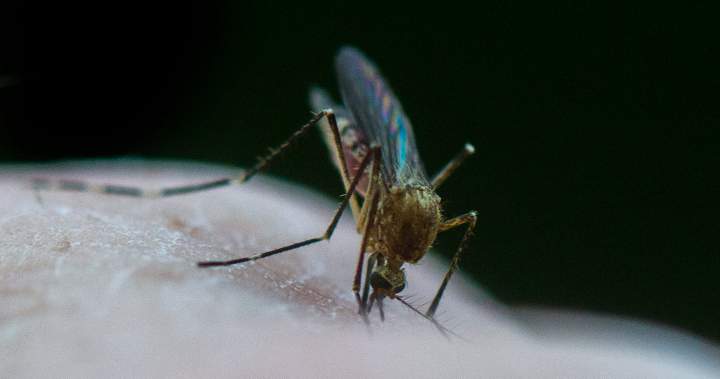Article – I stepped onto the dock in Kangiqsualujjuaq, a coastal Inuit community of about 900 people in Nunavik, Quebec’s northernmost region. The crisp September air carried the scent of salt and diesel as I waited for Jimmy Immaroitok, a local hunter who had agreed to show me how seasonal patterns were shifting in this remote corner of the province.
“The mosquitoes stay longer now,” Jimmy told me, squinting against the late afternoon sun. “When I was young, they would be gone by August. Now they’re here until the snow comes.”
It wasn’t just a matter of comfort. Jimmy’s observation pointed to something Quebec health officials have been tracking with growing concern: climate change is redrawing the map of mosquito-borne diseases in the province, pushing West Nile virus into areas where it was previously unknown.
Last month, Quebec’s public health institute reported West Nile virus-positive mosquitoes in the Abitibi-Témiscamingue region for the first time, a development that Dr. Alejandra Irace-Cima, a physician specializing in environmental health at Quebec’s National Institute of Public Health, called “a clear indicator of the expanding range of the virus.”
The disease, first detected in North America in 1999, has slowly established itself in southern Quebec over the past two decades. But its appearance in more northern regions signals a troubling trend that links directly to warming temperatures.
“The virus requires a certain number of warm days to complete its replication cycle in mosquitoes,” Dr. Ariane Dumas, an infectious disease researcher at Université Laval, explained when I spoke with her by phone. “As our summers grow longer and warmer, we’re seeing the virus survive and reproduce in places that were previously too cold.”
West Nile virus is primarily transmitted by mosquitoes that have bitten infected birds. While about 80 percent of infected humans show no symptoms, those who do may experience fever, headache, body aches, and in rare cases, severe neurological complications. For elderly individuals and those with compromised immune systems, the virus can be deadly.
In Abitibi-Témiscamingue, the regional health authority has launched an awareness campaign after detecting the virus in mosquito pools. Health officials are advising residents to take precautions like wearing long sleeves at dawn and dusk, using insect repellent, and eliminating standing water where mosquitoes breed.
What makes this northward expansion particularly concerning is how it combines with Quebec’s unique geography and settlement patterns. The province stretches from the US border to the Arctic Circle, encompassing diverse ecosystems and dozens of remote communities where healthcare access is already challenging.
“The communities least equipped to handle new disease threats are often the ones now facing these emerging risks,” said Catherine Girard, an ecologist who studies climate change impacts on northern Quebec environments. “Many remote communities have limited healthcare facilities and may lack diagnostic capacity for diseases that weren’t previously present in their region.”
Climate data from Environment and Climate Change Canada shows that average temperatures across Quebec have increased by approximately 1.5 degrees Celsius since 1950, with warming occurring most rapidly in the northern regions. This warming trend extends the active season for mosquitoes and accelerates the virus replication cycle within them.
I witnessed some of these changes firsthand when I visited the Cree community of Chisasibi along James Bay last summer. There, local environmental monitors showed me their mosquito surveillance program, a community-led initiative to track changing insect populations. The data they’ve collected shows mosquito species appearing earlier in spring and remaining active later into fall.
“Our elders tell us stories about seasonal rhythms that simply don’t match what we see today,” said Jennifer Wapachee, who coordinates the monitoring program. “When those patterns change, it affects everything from traditional hunting practices to new health concerns we need to prepare for.”
Quebec’s Ministry of Health has responded by expanding mosquito surveillance programs, which now include 95 monitoring stations across the province, up from 61 in 2015. These stations collect mosquitoes weekly throughout the summer months to test for West Nile virus and other mosquito-borne pathogens.
The province reported 25 confirmed human cases of West Nile virus infection last year, but health officials believe the actual number may be significantly higher since mild cases often go undiagnosed. As the virus territory expands, researchers expect case numbers to rise, particularly in newly affected regions where residents may be less aware of the risk.
“The challenge we face is preparing communities that have never dealt with this disease before,” said Dr. Irace-Cima. “We need to build awareness while avoiding unnecessary alarm.”
This balancing act is complicated by the fact that climate change impacts extend far beyond West Nile virus. Researchers at McGill University have documented at least 14 climate-sensitive infectious diseases that could expand their range in Quebec as temperatures warm, including Lyme disease, which has already established itself in parts of the province where it was previously absent.
Back in Kangiqsualujjuaq, Jimmy Immaroitok guided me along a narrow trail behind the community, pointing out subtle environmental changes that most visitors would miss: different plant species flowering, new types of insects appearing, shifting ice patterns along the coast.
“Everything is connected,” he said. “When one thing changes, everything else must adapt.”
As we work to understand and address the northward expansion of West Nile virus in Quebec, Jimmy’s wisdom offers an important reminder. Our health systems, like natural ecosystems, must adapt to changing conditions. The question is whether we can do so quickly and effectively enough to protect vulnerable communities as these changes accelerate.
For places like Abitibi-Témiscamingue, now facing West Nile virus for the first time, and for countless northern communities watching anxiously as mosquito seasons extend, this question has never been more urgent.






